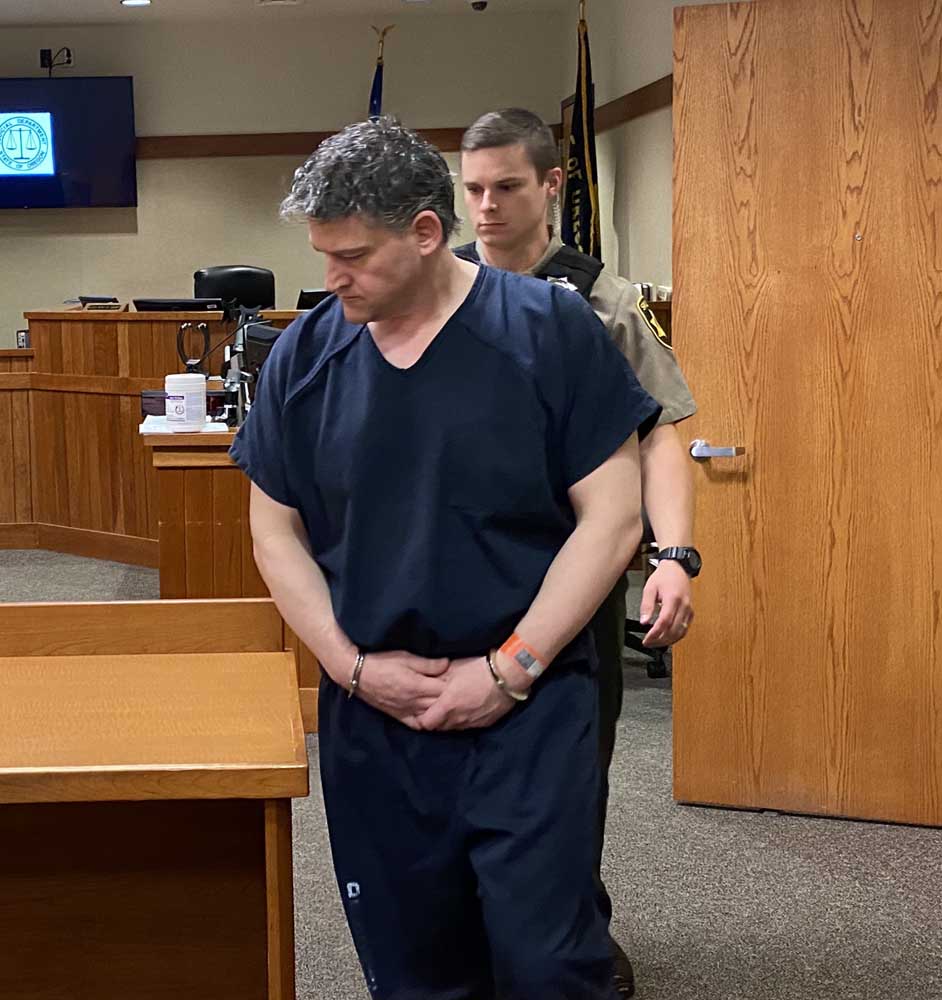Tense election divides Deschutes County Sheriff’s office
Published 5:30 am Sunday, October 13, 2024

- The Deschutes County Sheriff's Office, seen here in 2017.
It’s hard to distinguish between two candidates in an election when they have similar views, and Deschutes County Sheriff opponents Kent Vander Kamp and William Bailey have a lot in common.
Both believe in building strong relationships outside the sheriff’s office to combat homelessness and addiction. Both think the agency is understaffed for fast-growing Deschutes County, and both have decades of law-enforcement experience. Neither is a registered Democrat.
Without disparities in policy to guide voters, the race for the next Deschutes County Sheriff has become a contest to see which of the two candidates can find more skeletons in the other’s closet.
Since sitting Sheriff Shane Nelson announced he would not seek another term, the agency has been plagued with accusations of harassment and election interference, allegedly orchestrated by Bailey and Nelson. Vander Kamp hasn’t remained unscathed by rumors either, as he faces accusations from Nelson that he failed to disclose he was fired with cause from a California police department in the 1990s.
Now, the question isn’t which of the two candidates has the best approach to public safety, it’s about who voters feel they can trust amid the controversy surrounding both candidates.
A devolving office culture
The race for the next Deschutes County Sheriff has always ruffled feathers. In 2021, Nelson was found personally liable after he fired his former opponent, Eric Kozowski, a year after winning the 2016 election. But this time it feels different, Vander Kamp told The Bulletin.
“This is my fourth election,” Vander Kamp said. “Sheriff office elections always create tension … Everybody’s a little nervous about what the future is going to bring or how bad it’s going to be, but this year it is extraordinary how bad the anxiety is … the last seven years has been hard at the sheriff’s office, between the lawsuits (and) the toxicity that’s grown in the office.”
Evidence that the sheriff’s office has become an increasingly difficult place to work can be found in four tort claim notices — the official notification to a public agency of a potential lawsuit — filed by Vander Kamp, Sgt. Jeremiah Minton, Deputy Matthew Palmer and Lt. James McLaughlin over the last few months. All four employees say they have been retaliated against for their political affiliations and brought forward several examples of alleged workplace bullying.
Bailey takes a different stance. He said the ongoing tensions are no worse than they were during previous election cycles, despite revealing some people in the office no longer speak with each other after being friendly co-workers for decades. It’s all gone too far, he said, and there is no need for politics to ruin personal relationships.
“Sheriff’s offices go through this every four years. This is not something that is a one-off,” said Bailey. “The vast majority of our staff are confused about this toxic culture that is being implied in the community, that’s being sold to the media. There’s no need to destroy our office’s credibility in the community over this.”
DCSO Follies and disinformation
While Bailey is less concerned about the impact this election is having on workplace environment, he is very concerned about the impact of social media. He thinks people have become emboldened by their ability to hide behind a screen and that “fake social media accounts” are fueling divisions in the office.
One example is the website, DCSO Follies, a social media account openly critical of the current administration. On occasion, leaked documents from inside the agency have appeared on the website, including an internal complaint made by Minton alleging he was unfairly disciplined because he openly supported Vander Kamp.
“We have policies against leaking investigative material over private grievances,” Bailey said. “There’s no opportunity for a transparent or independent investigation because individuals that are hiding behind fake social media accounts are trying to tell people what’s going on and it’s not the truth.”
Since the satirical website gained popularity, there have been multiple accounts of department leaders attempting to limit employee exposure. Recently, the agency even signed into effect a contested Speech and Expressions Policy that Vander Kamp opposes. Clauses in the policy suggest that any employee involved in the creation of the website or found to be supplying information to the site could be subject to punishment up to termination.
Balancing a broken budget
One area where Bailey and Vander Kamp differentiate themselves is how they plan to approach the sheriff’s office budget.
Last year, The Bulletin reported that the sheriff’s office overestimated the amount of money it would start the year with by more than $2 million. Bailey said the office ended last year with a $4.4 million surplus, but did not mention that the county agreed to raise tax rates in May to compensate for the miscalculation. He blamed recent budget woes on overtime, which accounted for $800,000 last year, and rising health care costs. He also said the county increased operational service fees by $700,000.
Bailey is pinning his hopes to fix the budget on increasing the agency’s percentage of the transient room tax, which is essentially a tourism tax collected by the county.
“Tourism puts a big strain on the sheriff’s office and puts a strain on our budget, but the funding that comes (to law enforcement) from transient room tax has been really flat over the last 12 years when that revenue has actually nearly quadrupled,” Bailey said. “There’s been a lot of hands trying to look at that as a funding source, (but) we need to focus on core services.”
Vander Kamp staunchly disagrees with Bailey’s assessment.
“We only have two options: either go on a diet and start saving some money, or ask the voters for more money, which I don’t think is fair given the spending of the last years,” he said.
Vander Kamp believes that with his master’s degree in business administration, he can get the sheriff’s office back to where it needs to be. The problem right now, he said, is sorting through rampant budget stuffing, a practice where an expense from an over-budget category is intentionally put in an under-budget category in order to hide spending.
“You’ll never know how much is actually spent on it,” Vander Kamp said about the recent costs incurred in the lawsuit to obtain his employment records from the city of La Mesa. “They will lie, cheat and steal. They’ll vary the actual cost. Heck, we don’t even have a business manager right now for some unknown reason that nobody’s talking about.”
Navigating the transition
In light of ongoing political stress placed on the department by this election, Nelson appointed Paul Garrison as undersheriff. The appointment was intended to create a sense of stability for employees ahead of a potentially contentious transition of power.
“I don’t think it’s going to be a smooth transition at all. That’s been made pretty clear. I don’t know what will be standing come November 6,” Vander Kamp said. “What I do know is that we have to be professional in this process. The one thing that can’t change is we must provide public safety to Deschutes County.”
Bailey has openly agreed with Vander Kamp on this point in public debates. He told The Bulletin that, if elected, he will remain professional and make positive changes.
“Anytime you get a new leader, there’s going to be a change in direction. I told (Nelson when I was deciding to run), I’m not going to lead the office like you have. It’s not going to be the same agency. It’s going to have a new head, and I will have new ideas, new policies, new thoughts. I have my own communication style. I have my own relationships that I’m going to bring to the table.”
The election is Nov. 5. Nelson will step down on Jan. 1, and the winner will take over.





